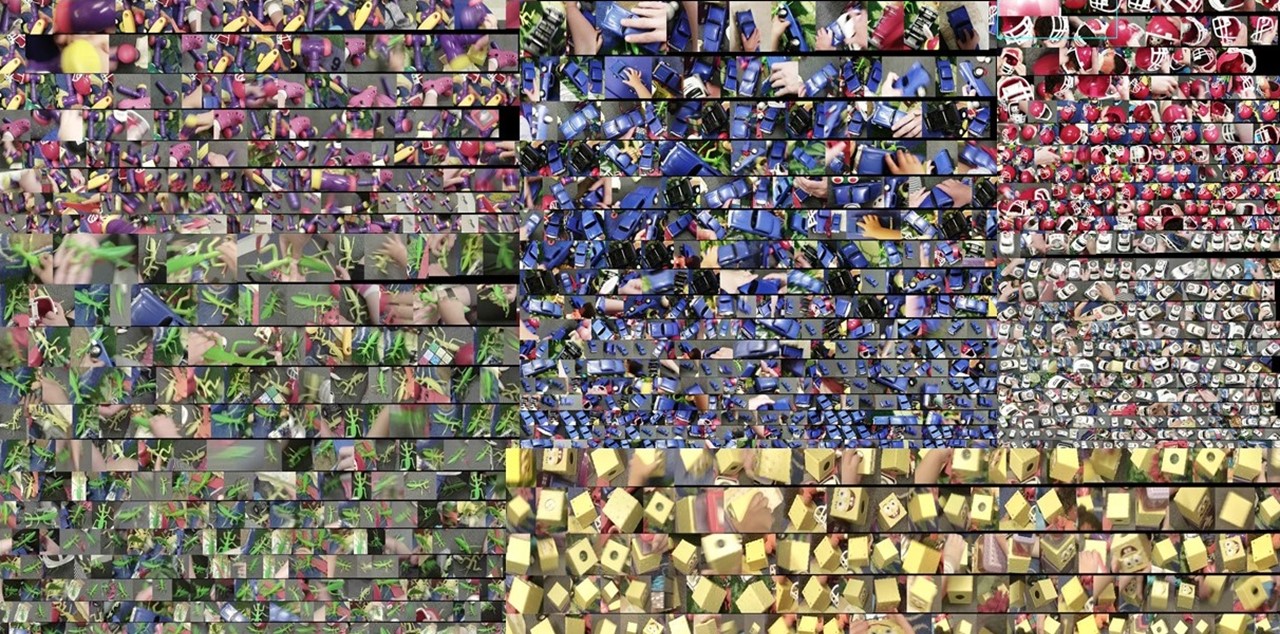About Us
The Developmental Intelligence Lab focuses its research efforts on three interrelated themes: 1) Statistical Word Learning: What statistical regularities in everyday environments are relevant to language learning? How are such learning inputs jointly created by parents and children in daily activities? And what computational mechanisms are responsible for aggregating the statistical information across multiple learning situations? 2) Egocentric Vision and Wearable Eye Tracking: We use head-mounted cameras and eye trackers to record egocentric videos when participants perform everyday tasks. Analyzing egocentric vision and eye-tracking data allows us to examine how perceptual, attention, action, and cognitive processes are tightly intertwined in real time. 3) Learning from Social Contexts: We collect dense sensor data that captures the perceptual inputs children receive (e.g., active vision via wearable eye trackers), their motor behaviors (e.g., via whole-body motion tracking), their social partner's actions during naturalistic social interactions, and a variety of contextual variables relevant to cognitive and learning tasks. These rich datasets have created the opportunity to extract fine-grained patterns from parent-child social interaction to uncover how the time-locked social signals encoded in multiple modalities support learning and cognition. In addition, there is an increasing awareness of differences between human and machine learners. Decades of research in developmental science have produced an increasingly detailed characterization of the key properties and dimensions of learning in children. We are interested in developmentally-inspired learning, linking machine learning with the known dimensions and properties of developmental learning in humans.
Lab highlights

University of Texas - Austin | Department of
Psychology
Lab email: chenyulab@austin.utexas.edu | Address: 108 E Dean Keeton St, Austin, TX 78712
Designed by Andrei Amatuni, Yayun Zhang, Dian Zhi





